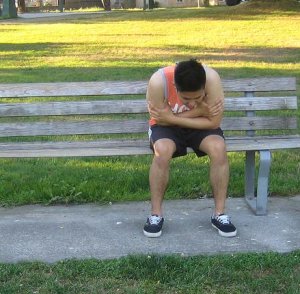Fissured tongue is called scrotal tongue which is characterized by fissures and folds found on the top surface of the tongue. The tongue has cracks on the surface and the edges. They are of variable depths and extend laterally from a middle groove. This condition does not cause pain, but when food particles and debris is lodge in the area it will result to inflammatory condition called glossitis.
The tongue is a muscular organ in the mouth that helps with formation of speech and the chewing and the swallowing of the food. It is a highly sensitive organ to temperature, touch and pain. Any injuries on the tongue can result to pain.
Symptoms of fissured tongue

- Redness and swelling
- Presence of cracks, splits on the top surface and sides of the tongue
- White, red and yellow patches on the tongue
- Throbbing or burning pain
- Pain becomes severe when eating acidic, spicy or salty foods
- Bad breath
- Formation of lumps or lesions on the tongue or near the mouth
- Swelling of the face or mouth
- Weakness of the muscle
- A severe symptom such as swelling within the cracks needs to be treated immediately.
Causes
- Allergic reaction
- Stress
- Constant friction placed on the tongue against uneven or broken tooth
- Systemic yeast infection
- Genetics
- Conditions such as Melkersson-Rosenthal syndrome, Down syndrome, Sjogren’s syndrome can cause fissured tongue
- Trauma to the tongue such as excessive brushing of the teeth, poked by a chipped tooth or orthodontic hardware.
- Excessive consumption of alcohol or tobacco
- Dehydration
Treatment
- Maintain proper hygiene by brushing the teeth regularly and if possible use a tongue cleaner to prevent microorganisms and some particles of food from entering the crevices and also prevent their growth. Use spearmint flavored toothpaste to prevent further irritation on the area.
- Drink plenty of water at least 10-12 glasses every day for proper moisture levels of the tongue.
- Avoid irritants on the mouth such as a brace and a chipped tooth to prevent further injury and worsen the condition.
- If grinding the teeth when sleeping, seek the help of a dentist for a prescribed mouth guard to be worn at night during sleeping.
- Increase the consumption of eggs, chicken, mushrooms, cauliflower and other foods rich in nutrients.
- Avoid tea, coffee, alcohol and tobacco to prevent irritation on the tongue and staining of the area.
- Take the suggested over-the-counter pain medications or mouth rinses that contains anesthetic.
- Perform regular exercises to improve the immune system of the body.
Tips
- Maintain proper oral and dental hygiene
- Increase the intake of biotin and iron supplements
- Avoid biting the tongue or running pointed objects in the mouth
